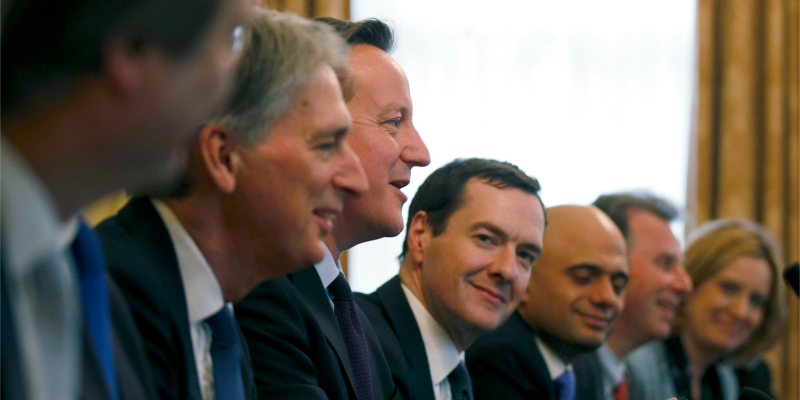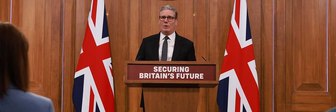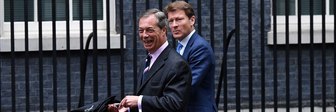For the first time Labour is less likely to be blamed for spending cuts than the Conservatives – and since the election there has been a slight decline in positivity for cuts
Today's Spending Review, setting out how £4 trillion of taxpayers' money will be spent over the next five years, will lay the foundations for the rest of this Parliament and shape the narrative of the 2020 election. George Osborne faces competing economic and political pressures, the balance of which may influence not only the result of 2020 but who leads the Conservatives to success or defeat. The Chancellor's leadership hopes rest on listening to public concern over tax credit cuts (people are divided on whether they should go ahead, and tend to see them as unfair) while sticking to his promises on deficit reduction and not shifting the burden of savings onto other sensitive areas.
Mr Osborne has to set out plans to find another £20 billion of savings from unprotected departments today – all except health, aid, schools and defence – but while in the past he has been able to blame the last Labour government for having to make difficult cuts, new YouGov research reveals that for the first time the public are more likely to blame them on the current Conservative government.
33% of British people now say the current Conservative government is to blame for spending cuts, while 32% blame the last Labour government. In 2010 on average 46% blamed Labour for the cuts and this did fall to 39% in 2011 and 35% by 2014, however this is the first time the Conservatives or their Lib Dem coalition partners have taken a greater share of the blame.
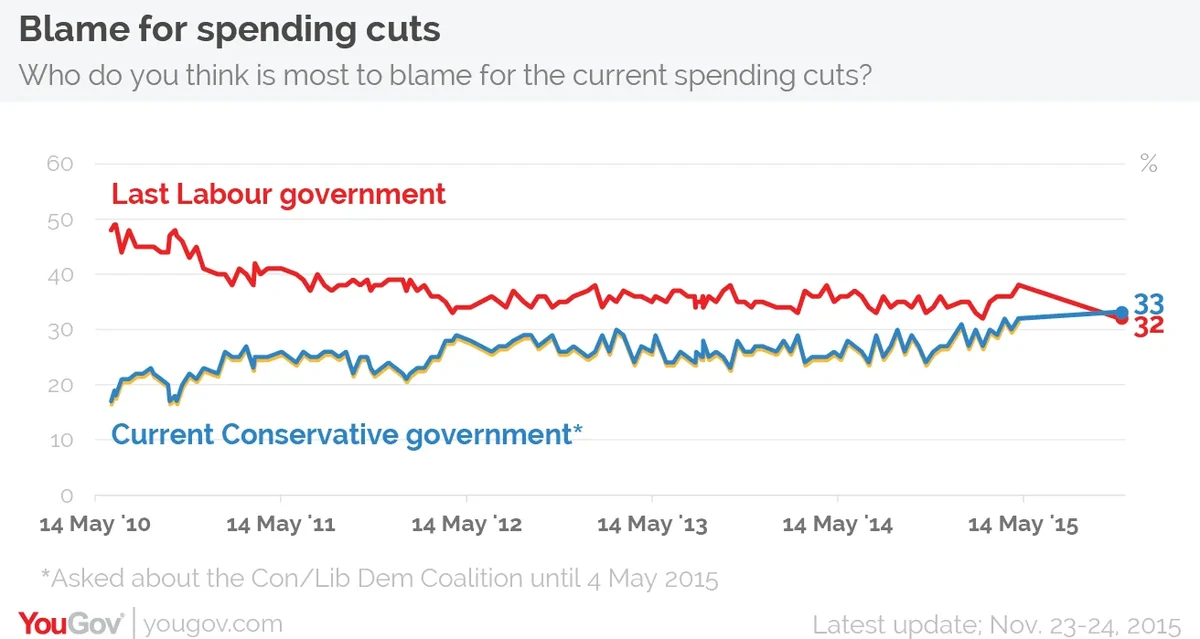
Most British people (53%) still see spending cuts as necessary, but positivity towards them on a number measures has fallen since the election.
On all of the metrics in the chart below support for cuts improved substantially around 2013 as the economy picked up and the initial impact of austerity began to fade. However on four out of five measures support for government cuts has fallen back to levels last seen in 2013, if not before.
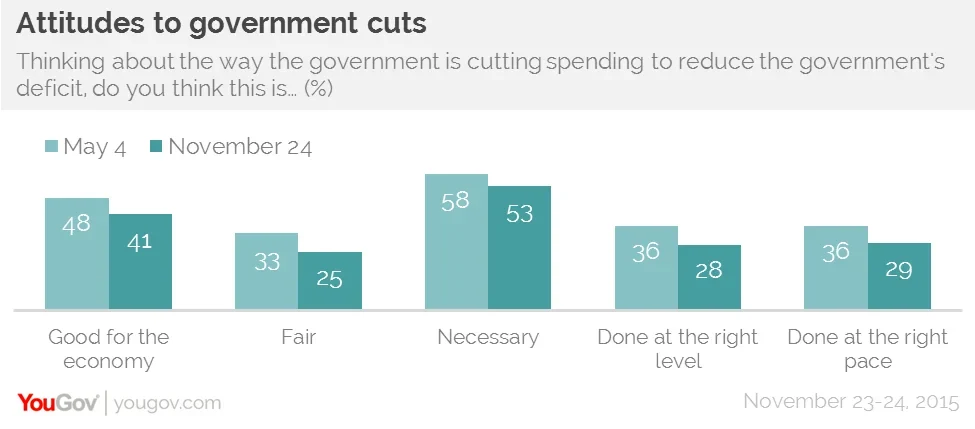
The exception is whether cuts are good for the economy. While in 2010 they were seen as good for the economy by a net average of +6, this changed to -13 in 2011 and -16 in 2012 before rising again to -6 in 2013 and +7 in 2014. Although only at +2 in our latest poll, this number has been equalled in 2015 and 2014. The average for 2015 is +8.
With the Paris attacks and the increased threat of terrorism in Europe support for protecting the crime and defence budgets from further spending cuts has increased since March, from 35% to 45% and 25% to 35% respectively. The Prime Minister announced £12bn extra defence spending on Monday.
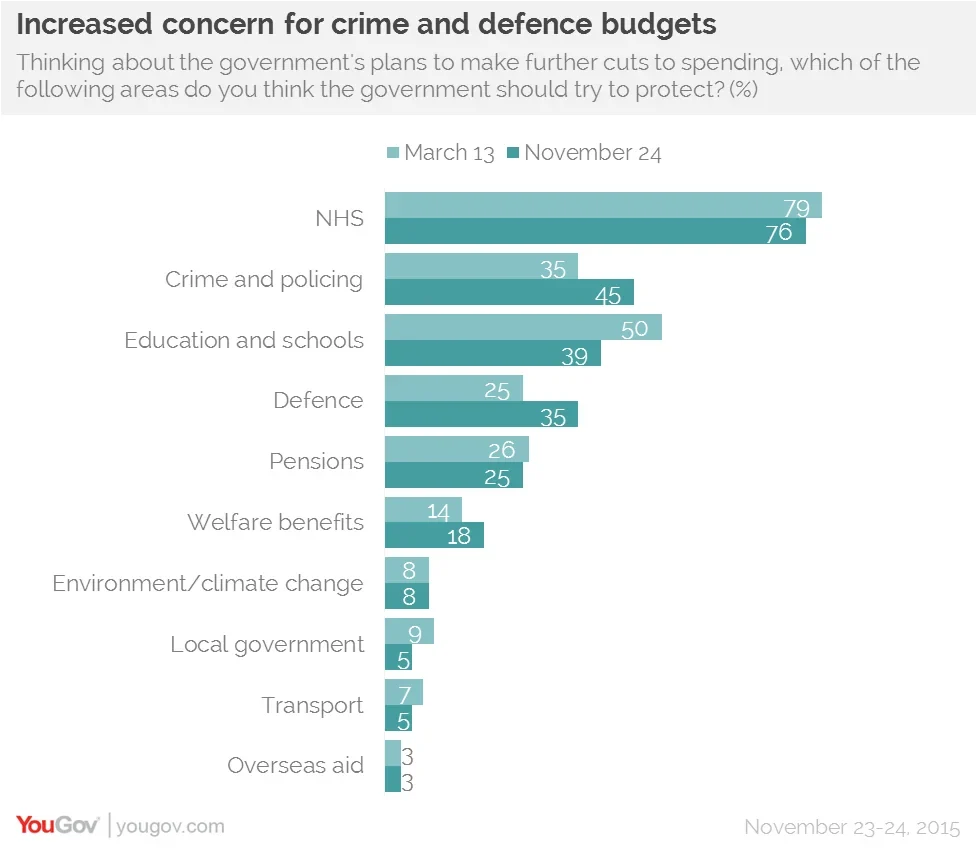
There has been little change since March in which departments the public say should have their spending cut the most. Overseas aid, despite being ringfenced from cuts, remains the least liked area (67% say further cuts should be made to it). Welfare is the second most unpopular area (35%) and the environment and climate change is a close third (31%).
PA image
